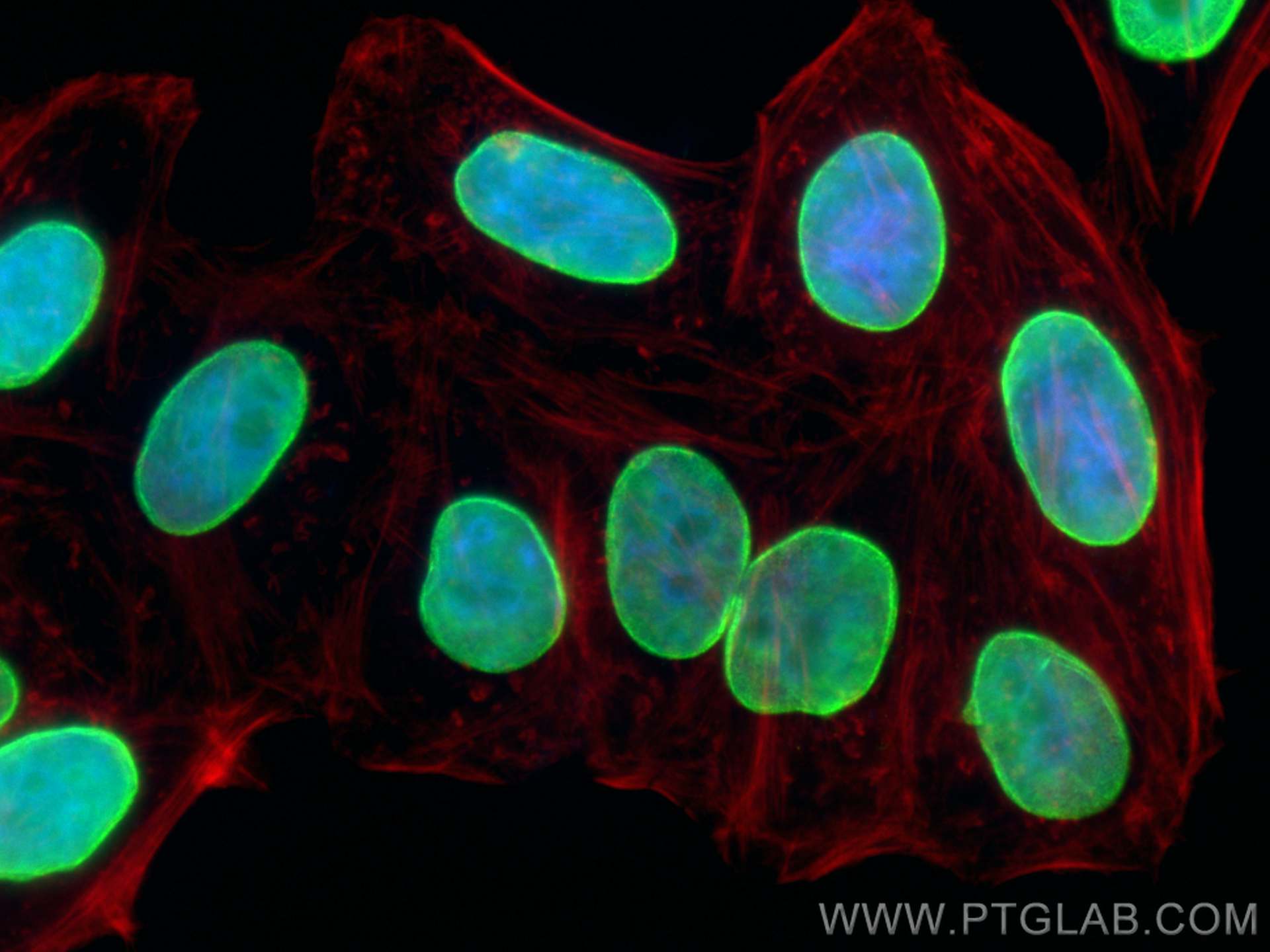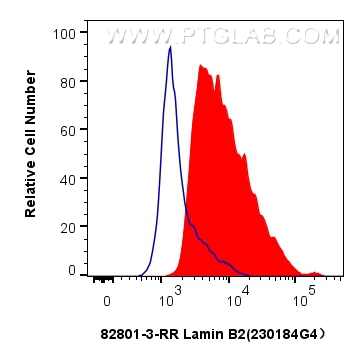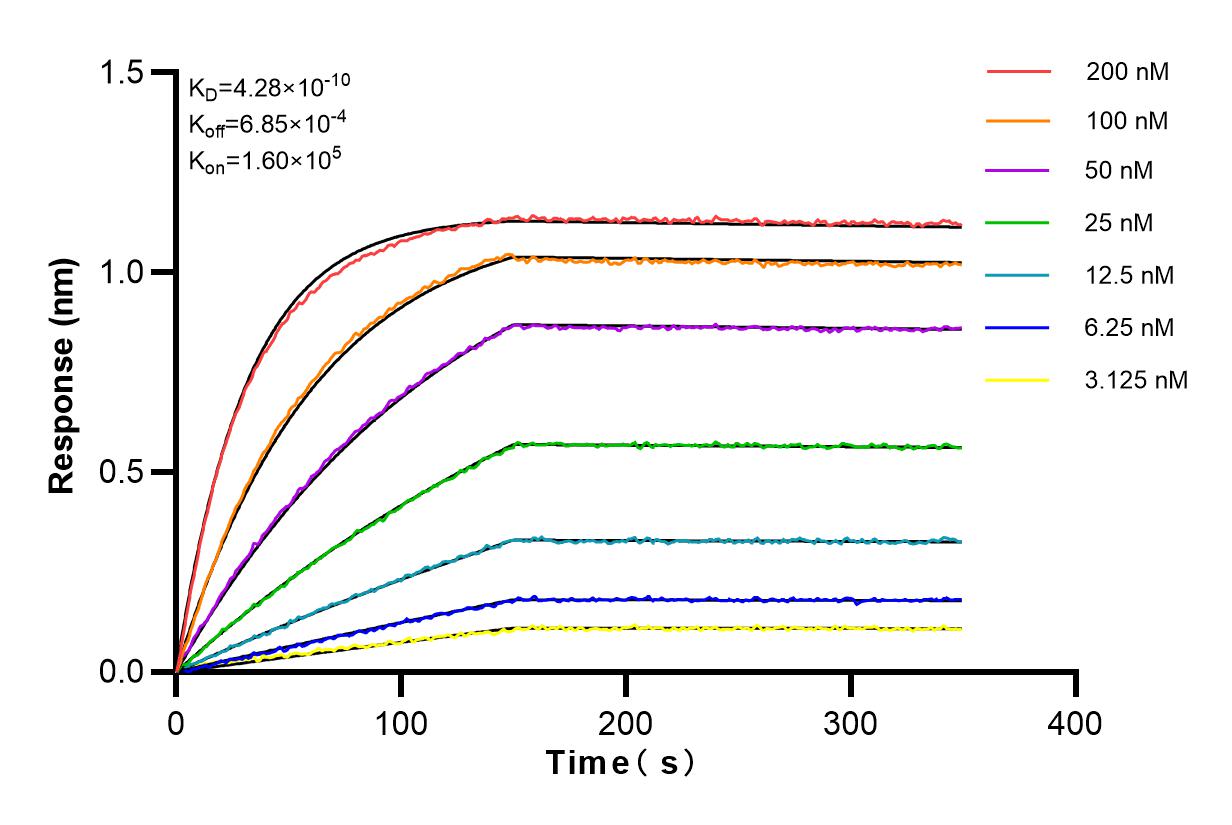验证数据展示
经过测试的应用
| Positive IF/ICC detected in | HepG2 cells |
| Positive FC (Intra) detected in | HepG2 cells |
推荐稀释比
| 应用 | 推荐稀释比 |
|---|---|
| Immunofluorescence (IF)/ICC | IF/ICC : 1:400-1:1600 |
| Flow Cytometry (FC) (INTRA) | FC (INTRA) : 0.25 ug per 10^6 cells in a 100 µl suspension |
| It is recommended that this reagent should be titrated in each testing system to obtain optimal results. | |
| Sample-dependent, Check data in validation data gallery. | |
产品信息
82801-3-RR targets Lamin B2 in IF/ICC, FC (Intra), ELISA applications and shows reactivity with human samples.
| 经测试应用 | IF/ICC, FC (Intra), ELISA Application Description |
| 经测试反应性 | human |
| 免疫原 | Lamin B2 fusion protein Ag1335 种属同源性预测 |
| 宿主/亚型 | Rabbit / IgG |
| 抗体类别 | Recombinant |
| 产品类型 | Antibody |
| 全称 | lamin B2 |
| 别名 | LMNB2, LMN2, Lamin-B2, LAMB2, 230184G4 |
| 计算分子量 | 68 kDa |
| GenBank蛋白编号 | BC006551 |
| 基因名称 | Lamin B2 |
| Gene ID (NCBI) | 84823 |
| RRID | AB_3670554 |
| 偶联类型 | Unconjugated |
| 形式 | Liquid |
| 纯化方式 | Protein A purification |
| UNIPROT ID | Q03252 |
| 储存缓冲液 | PBS with 0.02% sodium azide and 50% glycerol , pH 7.3 |
| 储存条件 | Store at -20°C. Stable for one year after shipment. Aliquoting is unnecessary for -20oC storage. |
背景介绍
Lamins are nuclear membrane structural components that are important in structural integrity of the nucleus and may also interact with chromatin (PMID: 33033404). Research studies show that lamin B2 knockout mice exhibit neuronal developmental defects and that both proteins are essential for typical brain development (PMID: 20145110). Mutations in Lamin B2 can result in a susceptibility to developing acquired partial lipodystrophy, a rare disorder characterized by the progressive loss of subcutaneous fat in a bilaterally symmetrical fashion (PMID: 16826530).
实验方案
| Product Specific Protocols | |
|---|---|
| IF protocol for Lamin B2 antibody 82801-3-RR | Download protocol |
| FC protocol for Lamin B2 antibody 82801-3-RR | Download protocol |
| Standard Protocols | |
|---|---|
| Click here to view our Standard Protocols |


